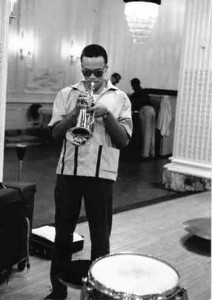From Southside Chicago to South Africa, Jones is known as Q, the man who has helped ignite the careers of megastars such as Michael Jackson, Oprah Winfrey and Will Smith among dozens of others. Jones lives life like a jazz riff, moving freely, brilliantly through every medium, eagerly embracing every new technology, as he himself says, “From disc to dat.” In the film, cultural critic Gerald Early explains why Quincy’s work on Michael Jackson’s Thriller album made it such a landmark. “It re-energized, revitalized the idea that black music has tremendous cross-over appeal. It absorbed elements from R&B, pop and even rock. Quincy Jones was able to synthesize a new sound that worked and that appealed to everyone, across race and generations.”
Q introduced Michael Jackson to Frank Sinatra, scored 33 feature films, produced a film with Steven Spielberg and even lent Alex Haley money to write Roots. Along the way, he earned a truckload of Grammys, Emmys and Oscar nominations. The film taps into a wealth of visual materials documenting key periods in Quincy’s life: footage of recording sessions, rehearsals, live performances, TV appearances and award ceremonies. Behind-the-scene period footage includes recording sessions with Frank Sinatra and Michael Jackson and stills from the set of The Color Purple, showing Quincy and Steven Spielberg with the young Oprah Winfrey and Whoopi Goldberg.
Among Q’s many friends interviewed in Quincy Jones: In the Pocket is former President Bill Clinton. “There have been lots of moments over the last several years when he has offered me support that was more than political,” says Clinton, who describes Quincy as an “anchor” during his most troubling times. “It was profoundly personal, and it meant a lot to me.” Says Herbie Hancock: “He’s got some special power to make the impossible possible.” Director Sidney Lumet, who first hired Quincy to score The Pawnbroker, says of Q: “Producer, composer, musician, arranger, compassionate helper – all are genuine parts of him.”
After 50 years in the business, there is still no end in sight. Quincy continues to produce music even as he moves further into the politically charged social arena. “I don’t know anybody who doesn’t like Quincy Jones,” the late great Ray Charles said of his boyhood friend. “And that’s a hell of a thing to say in show business.”






